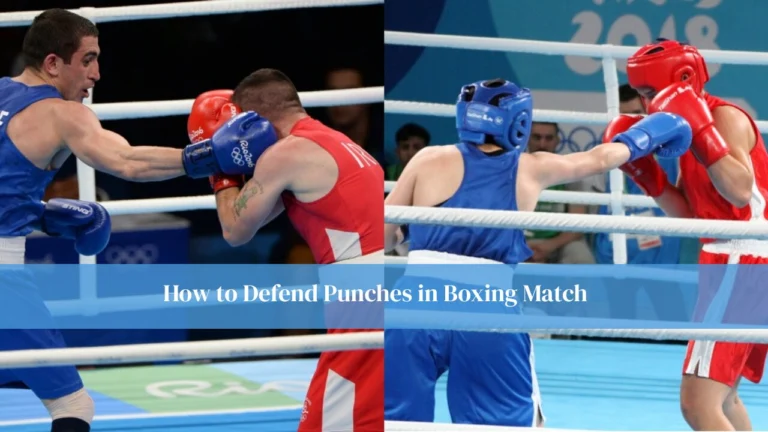Chess boxing, as intriguing as it sounds, is a rare hybrid sport that fuses the cerebral complexity of chess with the explosive intensity of boxing, alternating between rounds of mental and physical combat. To many, it is both puzzling and fascinating a sport that challenges athletes not only to think like grandmasters but also to fight like champions. Since its inception, chess boxing has ignited debates about whether it should be considered a legitimate sport. The question lingers: What exactly is chess boxing, and does it truly belong in the same category as other established competitive sports?
Is Chess Boxing a Sport?
Unlike sports rooted in centuries of tradition, chess boxing is a modern creation. The sport emerged from the imagination of Dutch artist Iepe Rubingh in the early 2000s, inspired by a scene from a French comic book by Enki Bilal. What began as a fictional concept soon became a tangible reality. In 2003, the first official chess boxing match was held in Berlin, and it quickly captured the attention of athletes, spectators, and the media alike.
For a sport to be officially recognized, it must meet certain criteria: clear rules, structured competition, skill development, measurable performance, and both mental and physical exertion. Chess boxing fulfills all these requirements. Athletes spend months in rigorous preparation perfecting chess strategies, sharpening boxing techniques, and conditioning their bodies to handle the intense demands of back-to-back mental and physical challenges. Over time, this unusual blend of activities has gained credibility, positioning chess boxing not just as a novelty but as a sophisticated and demanding form of sport.
Understanding the Dual Nature of Chess Boxing
At its core, chess boxing is the ultimate test of versatility. Matches consist of alternating rounds of chess and boxing, starting and ending with chess. Competitors must be equally skilled in both disciplines. Victory can come through either a knockout in boxing or a checkmate in chess, making every move and punch critical.
A typical match begins with four minutes of rapid chess, followed by three minutes of boxing, and continues to alternate until a winner is declared. The pacing is relentless just when the mind is fully engaged in deep calculation over the chessboard, the body must spring into action in the boxing ring, and vice versa.
The Physical Demands of Chess Boxing
The boxing component of chess boxing is no less rigorous than traditional bouts. Boxing requires cardiovascular endurance, upper and lower body strength, speed, and agility. Competitors must master defensive maneuvers like blocking and slipping punches while delivering precise, powerful strikes. The conditioning regimen involves extensive sparring, heavy bag work, roadwork for stamina, and high-intensity interval training to ensure peak physical readiness.
The challenge becomes even greater when athletes must transition from the adrenaline-fueled chaos of the ring to the calm precision of the chessboard, their hearts still pounding and sweat dripping as they try to focus on strategy.
The Mental Strain of the Chess Component
If the boxing rounds test the body, the chess rounds challenge the mind. Chess is a game of strategy, foresight, and adaptability. High-level matches require players to calculate multiple moves ahead, anticipate an opponent’s tactics, and make critical decisions under time pressure. In chess boxing, this mental challenge is amplified because the brain must perform at its peak immediately after enduring the physical exhaustion of boxing.
The psychological component is equally important. Competitors must remain composed, resisting the mental fatigue and emotional strain that come from the alternating shifts between fight and calculation. One lapse in concentration could mean checkmate — or a knockout in the next round.
The Global Rise of Chess Boxing
From its niche beginnings, chess boxing has grown into a recognized sport with dedicated clubs, training facilities, and organized competitions. It has found strong followings in Germany, Russia, the United Kingdom, and India, where national championships are held annually. In recent years, it has also begun attracting interest from North America, Asia, and other parts of Europe.
Major events have been instrumental in the sport’s expansion. The World Chess Boxing Championships gather top competitors from multiple continents, pitting the best minds and bodies against each other in high-stakes matches. These events showcase not just athletic ability but also mental mastery, and they often draw international media attention.
The European Chess Boxing Championships are equally significant, promoting the sport across the continent and encouraging cultural exchange between athletes. National tournaments in countries like Germany, the UK, and India serve as training grounds for future champions, fostering local talent and building grassroots communities around the sport.
The Future of Chess Boxing
Looking ahead, the future of chess boxing appears bright. The World Chess Boxing Organisation (WCBO) is actively promoting the sport, working on standardizing rules, introducing formal training systems, and even pushing for chess boxing to appear as an exhibition sport in larger athletic forums. While inclusion in the Olympics remains a distant goal, the steady rise in participation, especially among young athletes, signals that chess boxing is here to stay.
Technological innovation is also reshaping the sport. Live-streamed matches now feature smart boards that display moves in real time for audiences, biometric tracking to monitor players’ heart rates and performance under pressure, and hybrid commentary teams featuring both chess grandmasters and professional boxing analysts. These advancements make chess boxing more engaging for spectators and more data-driven for athletes seeking to improve.
Getting Started in Chess Boxing
For newcomers, entering the world of chess boxing can be both exciting and intimidating. Many beginners start by focusing on one discipline either chess or boxing before gradually incorporating the other. Training programs now exist in several countries, offering specialized classes that integrate the unique demands of the sport.
Online resources, including instructional videos, live Q&A sessions with coaches, and virtual chess tournaments, make it easier than ever for interested individuals to begin their journey. The community is known for its inclusivity and willingness to mentor newcomers, regardless of prior experience.
Why Chess Boxing Matters
Chess boxing is more than just a quirky mashup. It represents a new frontier in sports — one where mental and physical excellence are given equal importance. It challenges conventional thinking about athleticism, proving that true competition can exist beyond the boundaries of traditional categories.
By demanding mastery in two vastly different skill sets, chess boxing forces athletes to think and act under unique forms of pressure. It also demonstrates that mental discipline can coexist with physical aggression in a structured, respectful environment.
Conclusion
Chess boxing stands as a testament to human adaptability, blending the intellectual rigor of chess with the raw power of boxing in a way that few other sports can match. Whether viewed as an emerging curiosity or a fully-fledged sport, it offers a compelling narrative about balance, resilience, and innovation in competition.
As the sport continues to grow, one thing is clear: chess boxing is redefining what it means to be an athlete in the modern era. It proves that the mind and body, when trained together, can achieve feats that challenge the limits of human potential.
FAQs
What is chess boxing?
Chess boxing is a hybrid sport. It combines chess and boxing in alternating rounds. This tests both the physical and mental strength of participants.
How do you win a chess boxing match?
A competitor can win by knockout in the boxing rounds or checkmate in the chess rounds, offering two paths to victory.
Where did chess boxing originate?
Chess boxing was conceptualized by Dutch artist Ieper Robing and was inspired by a comic book. The first official fight took place in 2003.
Related Post:




